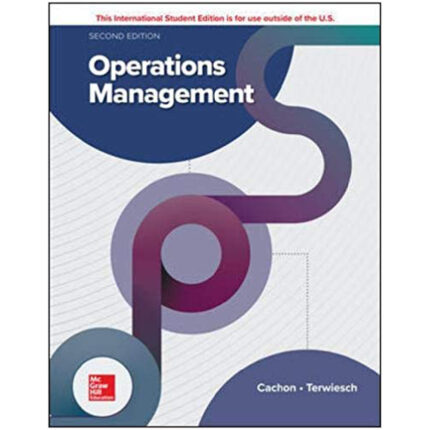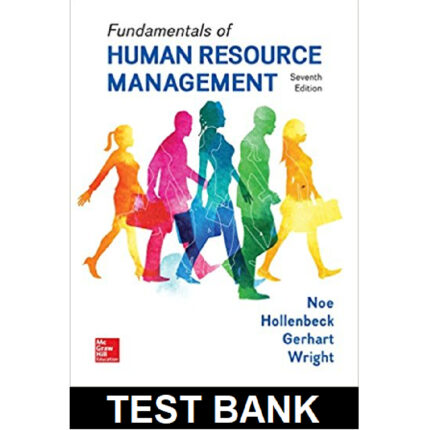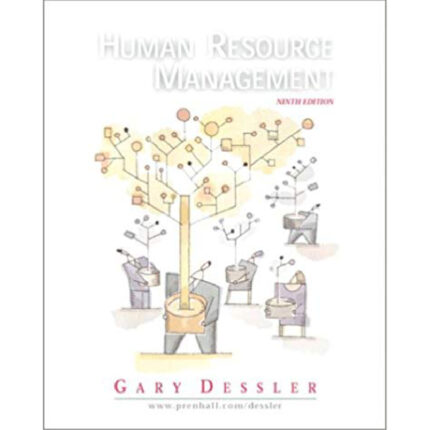Operations Management 13th Edition By William J Stevenson – Test Bank
Chapter 11 Test Bank – Static
1. Aggregate planning is capacity planning that typically covers a time horizon of one to three months.
FALSE
Aggregate planning covers the mid-term, typically two to 12 months.
AACSB: Reflective Thinking
Accessibility: Keyboard Navigation
Blooms: Remember
Difficulty: 2 Medium
Learning Objective: 11-01 Explain what aggregate planning is and how it is useful.
Topic: Aggregate Planning and Master Scheduling
2. The goal of aggregate planning is to achieve a production plan that effectively utilizes the organization’s resources to meet expected demand.
TRUE
This is the goal of aggregate planning.
AACSB: Reflective Thinking
Accessibility: Keyboard Navigation
Blooms: Remember
Difficulty: 1 Easy
Learning Objective: 11-01 Explain what aggregate planning is and how it is useful.
Topic: Aggregate Planning and Master Scheduling
3. Aggregate planners are concerned with the quality and quantity of expected demand.
FALSE
Aggregate planners are concerned with the quantity and timing of expected demand.
AACSB: Reflective Thinking
Accessibility: Keyboard Navigation
Blooms: Remember
Difficulty: 1 Easy
Learning Objective: 11-01 Explain what aggregate planning is and how it is useful.
Topic: Aggregate Planning and Master Scheduling
4. Aggregate planning is used to establish general levels of employment, output, and inventories over an intermediate range of time.
TRUE
This is the domain of aggregate planning.
AACSB: Reflective Thinking
Accessibility: Keyboard Navigation
Blooms: Remember
Difficulty: 1 Easy
Learning Objective: 11-01 Explain what aggregate planning is and how it is useful.
Topic: Aggregate Planning and Master Scheduling
5. The assignment of work to specific machines and people are examples of aggregate planning.
FALSE
Assigning work to specific machines or people is an example of detailed scheduling.
AACSB: Reflective Thinking
Accessibility: Keyboard Navigation
Blooms: Remember
Difficulty: 2 Medium
Learning Objective: 11-01 Explain what aggregate planning is and how it is useful.
Topic: Aggregate Planning and Master Scheduling
6. The output from aggregate planning is a detailed business plan covering the next 2 to 12 months.
FALSE
The output is a master schedule.
AACSB: Reflective Thinking
Accessibility: Keyboard Navigation
Blooms: Remember
Difficulty: 1 Easy
Learning Objective: 11-01 Explain what aggregate planning is and how it is useful.
Topic: Aggregate Planning and Master Scheduling
7. Demand can be altered in aggregate planning by promotion and producing additional product using overtime.
FALSE
Producing additional product using overtime is a supply option.
AACSB: Reflective Thinking
Accessibility: Keyboard Navigation
Blooms: Remember
Difficulty: 3 Hard
Learning Objective: 11-02 Identify the variables decision makers have to work with in aggregate planning.
Topic: Aggregate Planning and Master Scheduling
8. Capacity can be modified in aggregate planning by promotion and producing additional product using overtime.
FALSE
Promotions do not modify capacity.
AACSB: Reflective Thinking
Accessibility: Keyboard Navigation
Blooms: Remember
Difficulty: 1 Easy
Learning Objective: 11-02 Identify the variables decision makers have to work with in aggregate planning.
Topic: Aggregate Planning and Master Scheduling
9. Organizations facing seasonal changes in demand are prevented from using aggregate planning techniques.
FALSE
Aggregate planning can accommodate seasonal changes in demand.
AACSB: Reflective Thinking
Accessibility: Keyboard Navigation
Blooms: Remember
Difficulty: 2 Medium
Learning Objective: 11-01 Explain what aggregate planning is and how it is useful.
Topic: Aggregate Planning and Master Scheduling
10. Seasonality in demand has the advantage of leveling out requirements for our product or service.
FALSE
Seasonality increases variation in requirements.
AACSB: Reflective Thinking
Accessibility: Keyboard Navigation
Blooms: Remember
Difficulty: 2 Medium
Learning Objective: 11-01 Explain what aggregate planning is and how it is useful.
Topic: Aggregate Planning and Master Scheduling













Reviews
There are no reviews yet.